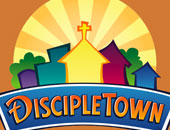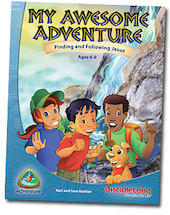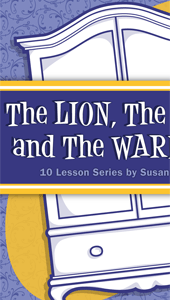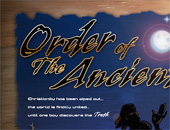the benefits of free play at church
Membership Level› Guest
Author/Source: Glen Alan Woods
Topic: Discipleship
Can a case be made for occasional free play at church? What benefits could there be for ministry for pauses the teaching to let kids have some free time?
There are certain seasons during the year in children’s ministry where I encourage the children to enjoy a certain amount of free play. It might seem to be such a waste. Free play? At church? What about teaching them the Bible? What about teaching them to pray, worship and serve? Where does the gospel fit in? Free play? Harumph. If this is your initial reaction, let me invite you to hold on a moment and consider my point-of-view.
Free play can have certain benefits and create unique opportunities if it is done within intentionally limited parameters. It allows children to develop relationships with each other and with adult leaders using their most fluent language, play. The younger the child is, or the more reticent, the more profoundly this dynamic can play itself out. Yet we adults tend to like to talk, or to solicit verbal responses from the children, forgetting how intimidating it can be for them. And when we aren’t talking, we may be trying to get them to read or write. There is nothing wrong with any of that to a certain degree, but a neglect of the varied ways people learn can have troubling consequences for those who are not primarily verbal/linguistic learners.
Free play changes the rules. It places the children back into their natural relational habitat, where they are learning to develop finely tuned systems for interacting. Here, they naturally learn to lead, negotiate, help each other, work out disagreements, forgive, and initiate spontaneous creative ideas. Can you say the same about your curriculum? If yes, great! If not, then it is something to think about.
So how does this look in my ministry? It varies. But there are consistent things I do to maximize the redemptive potential. I attend to the children in their play. That is, I do not stand off texting or talking on my cell, or primarily talking to another adult leader. Instead, I am attentive to the kinds of play going on among the children. For older children, this might involve games of four square, soccer, or basketball in our gymnasium. It might also include some puppetry, tag, or some other game they dream up on their own. Sometimes it involves play on our outdoor playground. In all these cases I attend to them, listening, and enjoying their company.
With younger children it more often involves toys such as blocks, playdough, art projects, tumbling mats, plastic tubes through which they climb and explore, and so on. Again, I attend to them, ever watchful and encouraging.
Invariably opportunities arise which allow me to help them work out their differences. Occasionally, I spend a moment asking a child how I might pray. Such a simple question. More often than not, it gives me a glimpse into their interior struggles. The dad who is angry and drinks too much, or who is never home. The mom who is always tired. The grandpa who is sick. The puppy who died. By taking a posture to ask them this simple question, they learn that I care about their needs. Doing this during free play time disarms their defensiveness about the deeper stuff in their hearts. This is especially true for older children, such as 5th and 6th graders. They do not want to be embarrassed in front of their peers, and I don’t blame them.
On certain occasions I will call each child individually over to me, informing the group beforehand that this would be happening. That way no one feels singled out, yet they all get face time with Pastor Glen. They don’t have to say much to me. I don’t force the issue. I simply invite them into a brief conversation. In other situations, there are obvious times when a group prayer is appropriate, thereby allowing children to minister to each other.
Typically a free play time will last no longer than fifteen minutes. Also, I do not necessarily do it each session. I do encourage children to practice during free play time what they are learning in the teaching session. It is amazing how many times I have seen this have a profound impact on specific children when they were able to connect the dots because they experienced in play what had just been discussed in Bible time. Imagine that. Free play can be a vessel which promotes Bible application.
Free play can have certain benefits and create unique opportunities if it is done within intentionally limited parameters. It allows children to develop relationships with each other and with adult leaders using their most fluent language, play. The younger the child is, or the more reticent, the more profoundly this dynamic can play itself out. Yet we adults tend to like to talk, or to solicit verbal responses from the children, forgetting how intimidating it can be for them. And when we aren’t talking, we may be trying to get them to read or write. There is nothing wrong with any of that to a certain degree, but a neglect of the varied ways people learn can have troubling consequences for those who are not primarily verbal/linguistic learners.
Free play changes the rules. It places the children back into their natural relational habitat, where they are learning to develop finely tuned systems for interacting. Here, they naturally learn to lead, negotiate, help each other, work out disagreements, forgive, and initiate spontaneous creative ideas. Can you say the same about your curriculum? If yes, great! If not, then it is something to think about.
So how does this look in my ministry? It varies. But there are consistent things I do to maximize the redemptive potential. I attend to the children in their play. That is, I do not stand off texting or talking on my cell, or primarily talking to another adult leader. Instead, I am attentive to the kinds of play going on among the children. For older children, this might involve games of four square, soccer, or basketball in our gymnasium. It might also include some puppetry, tag, or some other game they dream up on their own. Sometimes it involves play on our outdoor playground. In all these cases I attend to them, listening, and enjoying their company.
With younger children it more often involves toys such as blocks, playdough, art projects, tumbling mats, plastic tubes through which they climb and explore, and so on. Again, I attend to them, ever watchful and encouraging.
Invariably opportunities arise which allow me to help them work out their differences. Occasionally, I spend a moment asking a child how I might pray. Such a simple question. More often than not, it gives me a glimpse into their interior struggles. The dad who is angry and drinks too much, or who is never home. The mom who is always tired. The grandpa who is sick. The puppy who died. By taking a posture to ask them this simple question, they learn that I care about their needs. Doing this during free play time disarms their defensiveness about the deeper stuff in their hearts. This is especially true for older children, such as 5th and 6th graders. They do not want to be embarrassed in front of their peers, and I don’t blame them.
On certain occasions I will call each child individually over to me, informing the group beforehand that this would be happening. That way no one feels singled out, yet they all get face time with Pastor Glen. They don’t have to say much to me. I don’t force the issue. I simply invite them into a brief conversation. In other situations, there are obvious times when a group prayer is appropriate, thereby allowing children to minister to each other.
Typically a free play time will last no longer than fifteen minutes. Also, I do not necessarily do it each session. I do encourage children to practice during free play time what they are learning in the teaching session. It is amazing how many times I have seen this have a profound impact on specific children when they were able to connect the dots because they experienced in play what had just been discussed in Bible time. Imagine that. Free play can be a vessel which promotes Bible application.
FEELING LUCKY? Random Post on Kidology.org!











